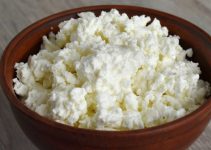The battle: baking soda vs. baking powder begins when you have to choose one of the two when you go to the supermarket.
Baking soda and baking powder are both leavening agents; they do the same job of making baked goods rise.
Both products appear to be similar, but they are not the same.
I will show you what the critical difference between them is.
Let’s see which one will win the battle of Baking Soda vs. Baking Powder.
What is Baking Soda?
Baking soda, also known as sodium bicarbonate, is a kitchen staple found in most kitchens. It has several uses and is used to help neutralize acids.
Combining baking soda with an acid (like yogurt) and a liquid, like milk, creates carbon dioxide.
This reaction makes baked goods rise and become light and fluffy.
That is why recipes that include baking soda will also have an acidic ingredient.
What is Baking Powder?
Baking powder is a cooking ingredient that can make cakes, biscuits, cookies, muffins, and other baked goods.
There are two types of baking powders – single-acting and double-acting.
Single-acting baking powder contains only one acid and one base.
Double-acting baking powder has an additional acid in addition to the base.
Difference Between Baking Soda and Baking Powder
Some people think these two products are identical, But is baking soda the same as baking powder?
Short answer: No
They might work similarly.
However, there is a crucial difference between them.
The main difference is baking soda needs an acid to work, while baking powder contains both an acid and a base.
Baking soda is a weak base with a pH of 8.2, while baking powder is a mixture of sodium bicarbonate (Baking soda), cornstarch, and cream of tartar.
Baking soda can react with acidic ingredients to produce carbon dioxide gas pockets in the dough, while baking powder reacts at a lower temperature.
Bakeries use baking powder because it is more reliable, it reacts faster with acidic ingredients than baking soda, and it does not release sugary byproducts as the latter does.
Baking powder is an additive that will raise dough without any leavening agents.
Substituting baking soda for baking powder
Substituting baking soda for baking powder in recipes can cause the product to be denser and have a different texture than expected.
Cooking with baking soda is not as simple as just substituting it for baking powder in any recipe.
As with everything, there are some specific things to keep in mind when substituting one chemical for another.
First off, remember that the two ingredients work differently due to their different chemical composition.
Baking soda is made of sodium bicarbonate and acid, which reacts together during cooking to release carbon dioxide gas that will help leaven the dough or batter and help it rise.
The reaction also makes the dough or batter more acidic, changing how flavors come out and how browns colors develop.





